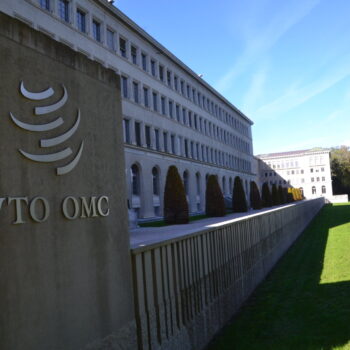The European Commission yesterday published new state aid guidelines covering the fields of energy and environment. In a rare move, the College of Commissioners voted on the proposals, showing the depth of political tension on this technical topic. The proposals put forward show that Commission is trying to find political compromises between the old and the new.
On the positive side, the guidelines create a good framework to deliver the internal energy market, protect it from distortive aid, and create a level-playing field for innovative and disruptive technologies. More negatively, however, they miss the opportunity to steer member states and their industries towards a highly resource-efficient and low-carbon economy.
The impact on renewables will depend on how DG Competition decides to implement the guidelines, notably on the technology neutrality requirements. However the emphasis the guidelines place on competitive bidding procedures will give advantage to large established incumbents over new market entrant and small players, which do not necessarily have the capacity or experience (or the time to gain it during the 2-year transition period) to succeed in these admin-heavy procedures. A longer grace period and further exemptions from competitive bidding procedures would allow a smoother transition of the renewable energy industry towards market integration.
Beyond renewables, the guidelines do appear to set a good benchmark for opening energy markets to new entrants and disruptive business models such as demand response and driving the transformation to a more interconnected European electricity market.
However we fear the European Commission has missed the opportunity to drive the transition of energy and carbon intensive industries by indulging Member States on the support provided via industry exemptions. We also regret that the Commisison has removed an article which would have made capacity payments to old coal plants harder to justify. Citizens and consumers should not have to pay for the poor investment decisions of utilities.
In an astonishing move, the European Commission has decided to lower the cap on the level of allowed support to energy efficiency measures. This seems ironic, if not illogical, in the current context. Only last month, the European Council concluded that energy efficiency was the first step to take to reduce the block’s energy dependency and deliver its energy and climate objectives.
The door is still open for further rectification though, for good or bad:
- The General Block Exemption Regulation, still being drafted, is crucial for the deployment of resource-efficient technologies and their cost-effective financing. We urge the European Commission not to limit the Member States’ ability to unlock their energy savings potential, which is central to their strategies on energy security, competitiveness and decarbonisation.
- Implementation of the guidelines throughout the next seven years will also determine whether the European Commission uses this framework accelerate the delivery of the internal energy market or reinforce the status quo.
- Implementation of the guidelines could also prescribe a one-size-fit all mould for renewables support schemes, hindering achievement of the 2020 goals and driving higher costs in Member States.
The final shape of the state aid proposals further demonstrates how effective Member States and industrial lobbies can be in influencing the European Commission when they put their mind to it. It is news to no one that Germany has been very active in defending its industrial tax exemption regime, and successfully so. We can only wish they now decide to be as proactive in reaching an agreement on the 2030 package.


